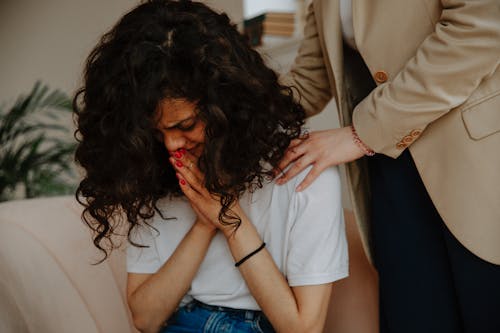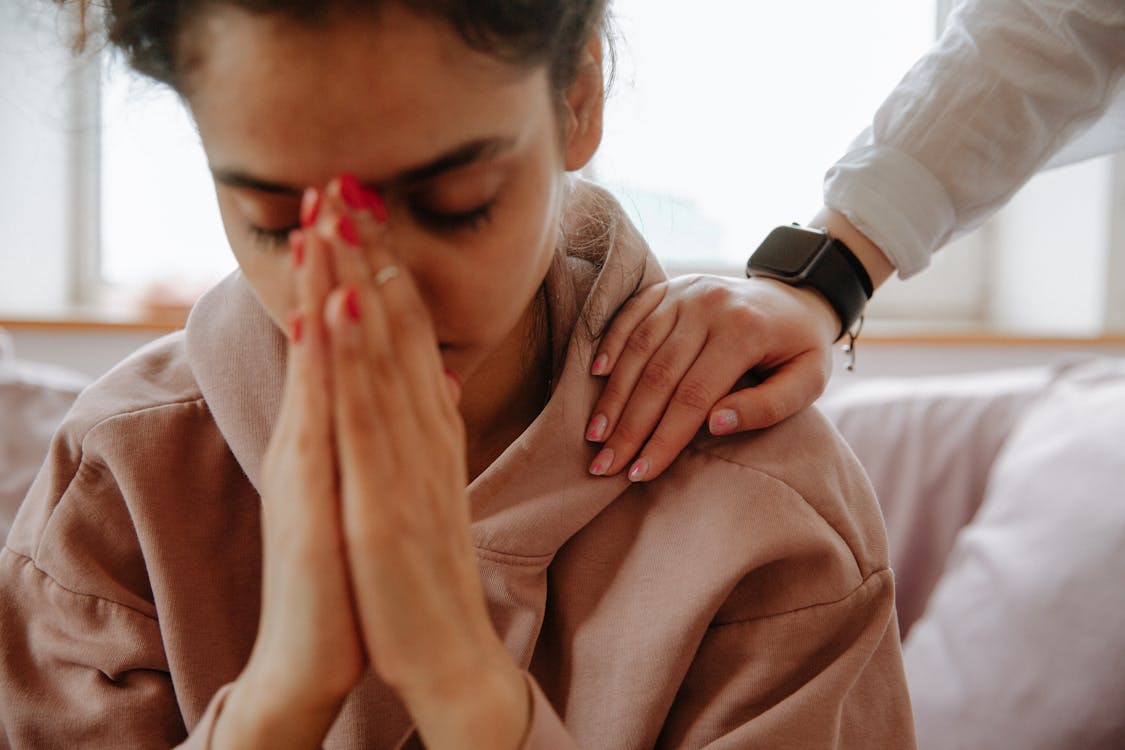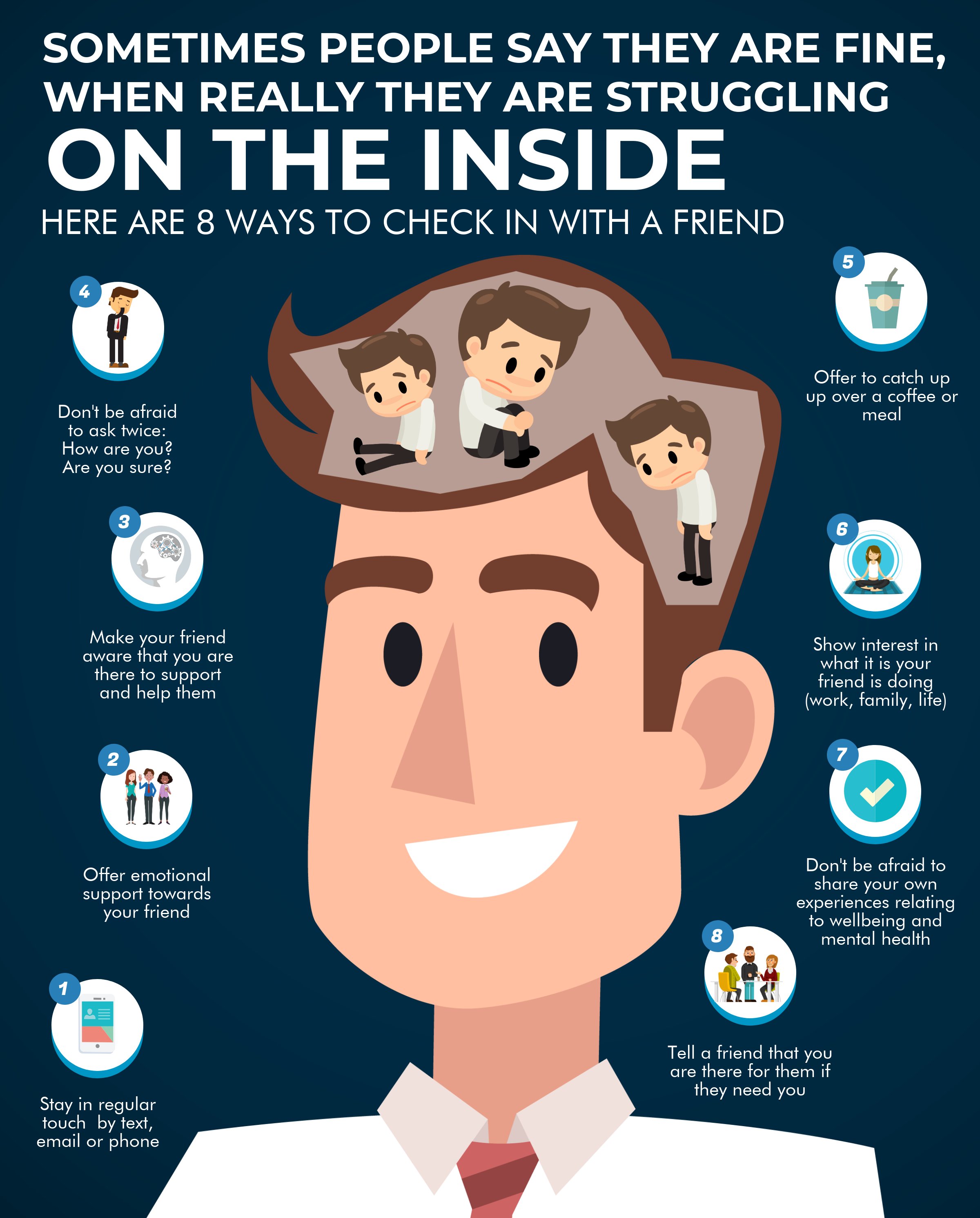
Lockdown fatigue: Why it’s important to check in with friends now
It's too easy nowadays to caught up in our own little worlds. With most of us still working from home, restrictions still in place and work seeming busier than ever, it feels as if there isn't enough energy left to go around at the end of the day. The pandemic has taken it's toll on all of us and lockdown fatigue is becoming a frightening reality as the one year mark approaches. A lot of people are beginning to feel listless, stuck and depressed about the situation that is starting to feel never-ending.
When we're all so caught up in our own routines and heads and troubles it's easy to forget that friends might be going through the exact same thing. It's so important to check in with our friends, now more than ever. Some may be living alone, some may be stuck at home in a toxic situation and some may be really struggling with coping in this anti-social lifestyle. BelievePerfrom, a U.K.-based sports performance group focused on mental health and wellness released a graphic earlier this week highlighting the different ways that we can keep an eye on friends and check in now and again.
1. Stay in regular touch by text, email or phone
If you're anything like me, you know that sometimes, even just the thought of organising a Zoom call can feel draining, but there are plenty of ways to keep in touch with friends that don't have to be an hour long call. A quick text here and there, a shared joke, an article you think they'd be interested in – sometimes people don't want a shared therapy session down the phone. Sometimes people just want to know they're being thought of.
2. Offer emotional support towards your friend

In times like these, we all need someone we can vent to. Life is frustrating right now. Maybe they can't see their family, or maybe they're back in their childhood home, maybe working from home is getting to them – it's important to let them know they can talk to you about these things, and that you can unload to them as well. More often than not, people just want a listening ear, not for you to solve all their problems.
3. Make your friends aware that you are there to support and help them

We can often feel we're bothering someone when we reach out to them to let them know we're not feeling okay. But in my experience, people are more than happy to help. Letting someone know you're there to listen and help out can make a major difference when someone is going through a low point, making them feel less like a burden and more like they're being supported.
4. Don't be afraid to ask twice: How are you? Are you sure?

How often have you been feeling down and brushed off questions with 'Oh, I'm fine, I'll be okay' and then ended up feeling even worse later? This ties in with the burdening thing again. We tend to not want to make our problems someone else's but sharing the load can make all the difference. If someone is clearly struggling and brushes off your questions, it doesn't hurt to ask again, as a way of assuring them you're ready and willing to listen.
5. Offer to catch up over a coffee or a meal

Now more than ever, this one is important. Our lives have become so home-based that it can be hard to break out of the work-home cycle and do something different. A change of scene or a break from the home office can shake things up and the socialisation – safely distanced of course – can really cheer someone up. We're losing out on so much social interaction over lockdown, that sometimes we forget how important face to face communication is.
6. Show an interest in what it is your friend is doing (work, family, life)

We've all picked up some hobby or another during lockdown. If your friend has gotten super into yoga, or painting or reading, suggest that as something you might do together sometime, over Zoom or distanced in person. There have been lot sof successful Zoom painting nights, virtual book clubs and park yoga sessions started over lockdown. If their hobby becomes a way to have some interaction as well, it can stop them from closing themselves off from people.
7. Don't be afraid to share your own experiences relating to wellbeing or mental health

Sometimes it helps to just hear 'me too.' It can feel like the whole world has had the most successful lockdown year of their lives, with new jobs, new hobbies, achieving things they've always wanted to, whereas some people have just felt…stuck. If your friend shares with you that they feel overwhelmed by something – working from home, distancing from their family, keeping their chin up – it can help to hear that they're not alone in that struggle. That even though it may seem like the whole world is doing fine, everyone is fighting their own battle at the moment and that it's perfectly normal.
8. Tell a friend that you are there for them if they need you

One of the major struggles a lot of people have right now is feeling isolated. If you're living alone, or are in a situation where you don't feel you have anyone close to you to turn to, the small issues suddenly seem very big, and very frightening. But having someone that you know you can turn to, no matter what can make those problems seem a little more manageable.
For more advice and support, visit Mental Health Ireland.







